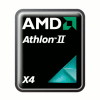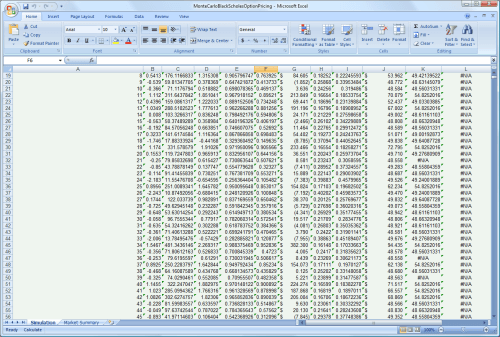- Qualcomm Launches Snapdragon 4 Gen 2 Mobile Platform
- AMD Launches Ryzen PRO 7000 Series Mobile & Desktop Platform
- Intel Launches Sleek Single-Slot Arc Pro A60 Workstation Graphics Card
- NVIDIA Announces Latest Ada Lovelace Additions: GeForce RTX 4060 Ti & RTX 4060
- Maxon Redshift With AMD Radeon GPU Rendering Support Now Available
AMD Athlon II X4 620 – Quad-Core at $99

Last month, AMD became the first company to bring a $99 quad-core processor to market, the Athlon II X4 620. The question, of course, is whether or not it delivers. At 2.60GHz, it looks to offer ample performance, but the lack of an L3 cache is sure to be seen in some of our tests. Luckily, the chip’s overclocking-ability helps negate that issue.
Page 6 – Mathematics: Sandra Arithmetic, Crypto, Microsoft Excel
With each new processor launch, one thing that’s bound to prove faster are mathematical equations, which when all said and done, plays a massive role in a lot of our computing today. The faster an equation can be completed, the faster a math-heavy process can finish.
Sandra includes applications designed to specifically test the mathematical performance of processors, with the main one being the arithmetic test.

Where raw arithmetic is concerned, Intel’s Core i family is king, with the lone exception of a non-HyperThreaded chip and the Whetstone computation. Our X4 620 performed quite well here, once again beating out the X3 720 and Q8200.
Sandra 2009 Cryptography
Crypto is a major part of computing, whether you know it or not, and certain processes can prove slower than others, depending on their algorithms. User passwords on your home PC are encrypted, as are user passwords on web servers (like in our forums). Past that, crypto is used in other areas as well, such as with creating of unbreakable locks on files or assigning a hash to a particular file (like MD5).
In Sandra’s Cryptography test, the results are outputted as MB/s, higher being better. Although this is somewhat of an odd metric to go by, generally speaking, the higher the number, the faster the CPU tears through the respective algorithm, which comes down to how fast a password is either encrypted, decrypted, signed, et cetera.

If you are huge into running security algorithms such as AES and SHA, then the X4 620 actually proves to be quite a bargain.
Microsoft Excel 2007
Most, if not all, businesses in existence have to crack open a spreadsheet at some point. Though simple in concept, spreadsheets are an ideal way to either track information or compute large calculations all in real-time. This is important when you run a business that deals with a large amount of expenses.
Although the importance of how fast a calculation takes in an Excel file is, we include results here since they heavily test the mathematical capabilities of each processor. Because Excel 2007 is completely multi-threaded (it can even take advantage of an 8-Core Skulltrail), it makes for a great benchmark to show the scaling between all of our CPUs.
I’ll let Intel explain the two files we use:
Monte Carlo – This workload calculates the European Put and Call option valuation for Black-Scholes option pricing using Monte Carlo simulation. It simulates the calculations performed when a spreadsheet with input parameters is updated and must recalculate the option valuation. In this scenario we execute approximately 300,000 iterations of Monte Carlo simulation. In addition, the workload uses Excel lookup functions to compare the put price from the model with the historical market price for 50,000 rows to understand the convergence. The input file is a 70.1 MB spreadsheet.
Calculations – This workload executes approximately 28,000 sets of calculations using the most common calculations and functions found in Excel*. These include common arithmetic operations like addition, subtraction, division, rounding and square root. It also includes common statistical analysis functions such as Max, Min, Median and Average. The calculations are performed after a spreadsheet with a large dataset is updated with new values and must re-calculate many data points. The input file is a 6.2 MB spreadsheet.

For many computational operations, raw frequency is very, very important, but so is having more cores. In the case of our Excel test, our X4 620 didn’t fare too well, despite the four cores. Even just the slightly higher frequency of the X3 720 made a huge difference here.
Support our efforts! With ad revenue at an all-time low for written websites, we're relying more than ever on reader support to help us continue putting so much effort into this type of content. You can support us by becoming a Patron, or by using our Amazon shopping affiliate links listed through our articles. Thanks for your support!






